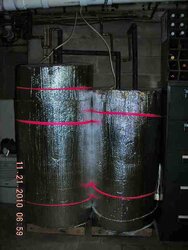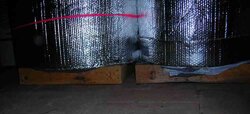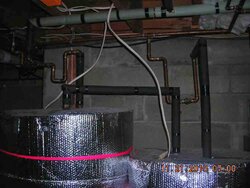C
charly
Guest
Any pro's or con's on the GE Geospring or AO Smith Voltex electric water heaters. My farm house basement is unheated. This units require a minimum of 45 degrees to keep working. I figure the basement should stay at 50 over the winter. A friend said he had to blow heat down into his basement that it got so cool from the heat pump removing the heat from the cellar air. Anyone else experience anything like that? Don't want to get this and find out my basement is freezing up. Also is the Voltex worth the extra 600 dollars. Your getting 80 gallons of water with the Voltex verses 50 with the GE.





 After only a day's use I"m impressed. Its not that loud and it seems to heat the water up pretty fast.
After only a day's use I"m impressed. Its not that loud and it seems to heat the water up pretty fast.